 Dante Alighieri is held in high regard in Italy, where he is often referred to as il Poeta, the poet. He is best known for the monumental poem La Commedia, later renamed La Divina Commedia – The Divine Comedy. Scholars consider it to be the greatest work of literature in the Italian language. Many also consider Dante to be symbolic father of the Italian language.
Dante Alighieri is held in high regard in Italy, where he is often referred to as il Poeta, the poet. He is best known for the monumental poem La Commedia, later renamed La Divina Commedia – The Divine Comedy. Scholars consider it to be the greatest work of literature in the Italian language. Many also consider Dante to be symbolic father of the Italian language.
[div class=attrib]According to Wikipedia:[end-div]
He wrote the Comedy in a language he called “Italian”, in some sense an amalgamated literary language mostly based on the regional dialect of Tuscany, with some elements of Latin and of the other regional dialects. The aim was to deliberately reach a readership throughout Italy, both laymen, clergymen and other poets. By creating a poem of epic structure and philosophic purpose, he established that the Italian language was suitable for the highest sort of expression. In French, Italian is sometimes nicknamed la langue de Dante. Publishing in the vernacular language marked Dante as one of the first (among others such as Geoffrey Chaucer and Giovanni Boccaccio) to break free from standards of publishing in only Latin (the language of liturgy, history, and scholarship in general, but often also of lyric poetry). This break set a precedent and allowed more literature to be published for a wider audience—setting the stage for greater levels of literacy in the future.
By Dante Alighieri
(translated by the Rev. H. F. Cary)
– Inferno, Canto I
In the midway of this our mortal life,
I found me in a gloomy wood, astray
Gone from the path direct: and e’en to tell
It were no easy task, how savage wild
That forest, how robust and rough its growth,
Which to remember only, my dismay
Renews, in bitterness not far from death.
Yet to discourse of what there good befell,
All else will I relate discover’d there.
How first I enter’d it I scarce can say,
Such sleepy dullness in that instant weigh’d
My senses down, when the true path I left,
But when a mountain’s foot I reach’d, where clos’d
The valley, that had pierc’d my heart with dread,
I look’d aloft, and saw his shoulders broad
Already vested with that planet’s beam,
Who leads all wanderers safe through every way.
Then was a little respite to the fear,
That in my heart’s recesses deep had lain,
All of that night, so pitifully pass’d:
And as a man, with difficult short breath,
Forespent with toiling, ‘scap’d from sea to shore,
Turns to the perilous wide waste, and stands
At gaze; e’en so my spirit, that yet fail’d
Struggling with terror, turn’d to view the straits,
That none hath pass’d and liv’d. My weary frame
After short pause recomforted, again
I journey’d on over that lonely steep,
The hinder foot still firmer. Scarce the ascent
Began, when, lo! a panther, nimble, light,
And cover’d with a speckled skin, appear’d,
Nor, when it saw me, vanish’d, rather strove
To check my onward going; that ofttimes
With purpose to retrace my steps I turn’d.
The hour was morning’s prime, and on his way
Aloft the sun ascended with those stars,
That with him rose, when Love divine first mov’d
Those its fair works: so that with joyous hope
All things conspir’d to fill me, the gay skin
Of that swift animal, the matin dawn
And the sweet season. Soon that joy was chas’d,
And by new dread succeeded, when in view
A lion came, ‘gainst me, as it appear’d,
With his head held aloft and hunger-mad,
That e’en the air was fear-struck. A she-wolf
Was at his heels, who in her leanness seem’d
Full of all wants, and many a land hath made
Disconsolate ere now. She with such fear
O’erwhelmed me, at the sight of her appall’d,
That of the height all hope I lost. As one,
Who with his gain elated, sees the time
When all unwares is gone, he inwardly
Mourns with heart-griping anguish; such was I,
Haunted by that fell beast, never at peace,
Who coming o’er against me, by degrees
Impell’d me where the sun in silence rests.
While to the lower space with backward step
I fell, my ken discern’d the form one of one,
Whose voice seem’d faint through long disuse of speech.
When him in that great desert I espied,
“Have mercy on me!” cried I out aloud,
“Spirit! or living man! what e’er thou be!”
He answer’d: “Now not man, man once I was,
And born of Lombard parents, Mantuana both
By country, when the power of Julius yet
Was scarcely firm. At Rome my life was past
Beneath the mild Augustus, in the time
Of fabled deities and false. A bard
Was I, and made Anchises’ upright son
The subject of my song, who came from Troy,
When the flames prey’d on Ilium’s haughty towers.
But thou, say wherefore to such perils past
Return’st thou? wherefore not this pleasant mount
Ascendest, cause and source of all delight?”
“And art thou then that Virgil, that well-spring,
From which such copious floods of eloquence
Have issued?” I with front abash’d replied.
“Glory and light of all the tuneful train!
May it avail me that I long with zeal
Have sought thy volume, and with love immense
Have conn’d it o’er. My master thou and guide!
Thou he from whom alone I have deriv’d
That style, which for its beauty into fame
Exalts me. See the beast, from whom I fled.
O save me from her, thou illustrious sage!
“For every vein and pulse throughout my frame
She hath made tremble.” He, soon as he saw
That I was weeping, answer’d, “Thou must needs
Another way pursue, if thou wouldst ‘scape
From out that savage wilderness. This beast,
At whom thou criest, her way will suffer none
To pass, and no less hindrance makes than death:
So bad and so accursed in her kind,
That never sated is her ravenous will,
Still after food more craving than before.
To many an animal in wedlock vile
She fastens, and shall yet to many more,
Until that greyhound come, who shall destroy
Her with sharp pain. He will not life support
By earth nor its base metals, but by love,
Wisdom, and virtue, and his land shall be
The land ‘twixt either Feltro. In his might
Shall safety to Italia’s plains arise,
For whose fair realm, Camilla, virgin pure,
Nisus, Euryalus, and Turnus fell.
He with incessant chase through every town
Shall worry, until he to hell at length
Restore her, thence by envy first let loose.
I for thy profit pond’ring now devise,
That thou mayst follow me, and I thy guide
Will lead thee hence through an eternal space,
Where thou shalt hear despairing shrieks, and see
Spirits of old tormented, who invoke
A second death; and those next view, who dwell
Content in fire, for that they hope to come,
Whene’er the time may be, among the blest,
Into whose regions if thou then desire
T’ ascend, a spirit worthier then I
Must lead thee, in whose charge, when I depart,
Thou shalt be left: for that Almighty King,
Who reigns above, a rebel to his law,
Adjudges me, and therefore hath decreed,
That to his city none through me should come.
He in all parts hath sway; there rules, there holds
His citadel and throne. O happy those,
Whom there he chooses!” I to him in few:
“Bard! by that God, whom thou didst not adore,
I do beseech thee (that this ill and worse
I may escape) to lead me, where thou saidst,
That I Saint Peter’s gate may view, and those
Who as thou tell’st, are in such dismal plight.”
Onward he mov’d, I close his steps pursu’d.
[div class=attrib]Read the entire poem here.[end-div]
[div class=attrib]Image: Dante Alighieri, engraving after the fresco in Bargello Chapel, painted by Giotto di Bondone. Courtesy of Wikipedia.[end-div]
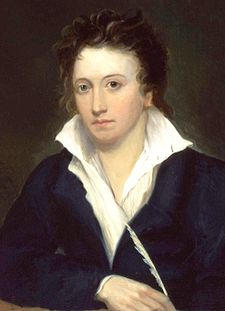 It’s been rather cold across much of the United States recently — even in areas of the South that rarely see below zero on a thermometer. So, how better to honor the cold than to soak in Shelley’s chillingly beautiful Lines.
It’s been rather cold across much of the United States recently — even in areas of the South that rarely see below zero on a thermometer. So, how better to honor the cold than to soak in Shelley’s chillingly beautiful Lines.
 Seamus Heaney, poet, Nobel Laureate and above all observer of the Irish condition passed away last week.
Seamus Heaney, poet, Nobel Laureate and above all observer of the Irish condition passed away last week. Emily Dickinson has been much written about, but still remains enigmatic. Many of her peers thought her to be eccentric and withdrawn. Only after her death did the full extent of her prolific writing become apparent. To this day, her unique poetry is regarded as having ushered in a new era of personal observation and expression.
Emily Dickinson has been much written about, but still remains enigmatic. Many of her peers thought her to be eccentric and withdrawn. Only after her death did the full extent of her prolific writing become apparent. To this day, her unique poetry is regarded as having ushered in a new era of personal observation and expression. A month in to fall and it really does now seem like Autumn — leaves are turning and falling, jackets have reappeared, brisk morning walks are now shrouded in darkness.
A month in to fall and it really does now seem like Autumn — leaves are turning and falling, jackets have reappeared, brisk morning walks are now shrouded in darkness. We celebrate the arrival of winter to the northern hemisphere with an evocative poem by Kenneth Patchen.
We celebrate the arrival of winter to the northern hemisphere with an evocative poem by Kenneth Patchen. Robert Hayden is generally accepted as one of the premier authors of African American poetry. His expertly crafted poems focusing on the black historical experience earned him numerous awards.
Robert Hayden is generally accepted as one of the premier authors of African American poetry. His expertly crafted poems focusing on the black historical experience earned him numerous awards. Dante Alighieri is held in high regard in Italy, where he is often referred to as il Poeta, the poet. He is best known for the monumental poem La Commedia, later renamed La Divina Commedia – The Divine Comedy. Scholars consider it to be the greatest work of literature in the Italian language. Many also consider Dante to be symbolic father of the Italian language.
Dante Alighieri is held in high regard in Italy, where he is often referred to as il Poeta, the poet. He is best known for the monumental poem La Commedia, later renamed La Divina Commedia – The Divine Comedy. Scholars consider it to be the greatest work of literature in the Italian language. Many also consider Dante to be symbolic father of the Italian language. A chronicler of the human condition and deeply personal emotion, poet Sharon Olds is no shrinking violet. Her contemporary poems have been both highly praised and condemned for their explicit frankness and intimacy.
A chronicler of the human condition and deeply personal emotion, poet Sharon Olds is no shrinking violet. Her contemporary poems have been both highly praised and condemned for their explicit frankness and intimacy. Poet, essayist and playwright Todd Hearon grew up in North Carolina. He earned a PhD in editorial studies from Boston University. He is winner of a number of national poetry and playwriting awards including the 2007 Friends of Literature Prize and a Dobie Paisano Fellowship from the University of Texas at Austin.
Poet, essayist and playwright Todd Hearon grew up in North Carolina. He earned a PhD in editorial studies from Boston University. He is winner of a number of national poetry and playwriting awards including the 2007 Friends of Literature Prize and a Dobie Paisano Fellowship from the University of Texas at Austin. Joy Harjo is an acclaimed poet, musician and noted teacher. Her poetry is grounded in the United States’ Southwest and often encompasses Native American stories and values.
Joy Harjo is an acclaimed poet, musician and noted teacher. Her poetry is grounded in the United States’ Southwest and often encompasses Native American stories and values.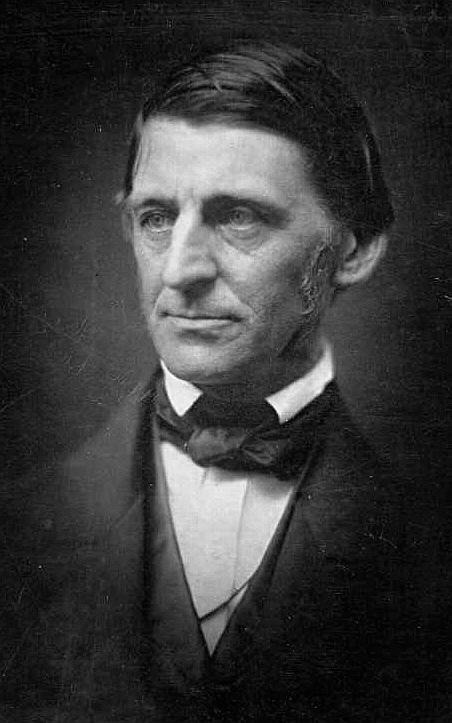 This week, theDiagonal focuses its energies on that most precious of natural resources — water.
This week, theDiagonal focuses its energies on that most precious of natural resources — water. Ushering in our week of articles focused mostly on death and loss is a classic piece by Welshman, Dylan Thomas. Although Thomas’ literary legacy is colored by his legendary drinking and philandering, many critics now seem to agree that his poetry belongs in the same class as that of W.H. Auden.
Ushering in our week of articles focused mostly on death and loss is a classic piece by Welshman, Dylan Thomas. Although Thomas’ literary legacy is colored by his legendary drinking and philandering, many critics now seem to agree that his poetry belongs in the same class as that of W.H. Auden. Tomas Tranströmer is one of Sweden’s leading poets. He studied poetry and psychology at the University of Stockholm. Tranströmer was awarded the 2011 Nobel Prize for Literature “because, through his condensed, translucent images, he gives us fresh access to reality”.
Tomas Tranströmer is one of Sweden’s leading poets. He studied poetry and psychology at the University of Stockholm. Tranströmer was awarded the 2011 Nobel Prize for Literature “because, through his condensed, translucent images, he gives us fresh access to reality”. The Autumnal Equinox finally ushers in some cooler temperatures for the northern hemisphere, and with that we reflect on this most human of seasons courtesy of a poem by Archibald MacLeish.
The Autumnal Equinox finally ushers in some cooler temperatures for the northern hemisphere, and with that we reflect on this most human of seasons courtesy of a poem by Archibald MacLeish.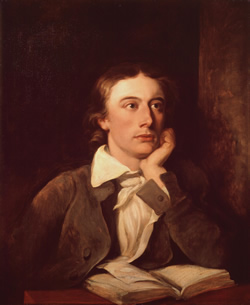
 A poem by Anthony Hecht this week. On Hecht, Poetry Foundation remarks, “[o]ne of the leading voices of his generation, Anthony Hecht’s poetry is known for its masterful use of traditional forms and linguistic control.”
A poem by Anthony Hecht this week. On Hecht, Poetry Foundation remarks, “[o]ne of the leading voices of his generation, Anthony Hecht’s poetry is known for its masterful use of traditional forms and linguistic control.” This week theDiagonal triangulates its sights on the topic of language and communication. So, we introduce an apt poem by Robert Duncan. Of Robert Duncan, Poetry Foundation writes:
This week theDiagonal triangulates its sights on the topic of language and communication. So, we introduce an apt poem by Robert Duncan. Of Robert Duncan, Poetry Foundation writes: Labor Day traditionally signals the end of summer. A poem by Gwendolyn Brooks sets the mood. She was the first black author to win the Pulitzer Prize.
Labor Day traditionally signals the end of summer. A poem by Gwendolyn Brooks sets the mood. She was the first black author to win the Pulitzer Prize. A poem by Billy Collins ushers in another week. Collins served two terms as the U.S. Poet Laureate, from 2001-2003. He is known for poetry imbued with leftfield humor and deep insight.
A poem by Billy Collins ushers in another week. Collins served two terms as the U.S. Poet Laureate, from 2001-2003. He is known for poetry imbued with leftfield humor and deep insight. A poignant, poetic view of our relationships, increasingly mediated and recalled for us through technology. Conor O’Callaghan’s poem ushers in this week’s collection of articles at theDiagonal focused on technology.
A poignant, poetic view of our relationships, increasingly mediated and recalled for us through technology. Conor O’Callaghan’s poem ushers in this week’s collection of articles at theDiagonal focused on technology. Monday’s poem authored by William Meredith, was selected for it is in keeping with our
Monday’s poem authored by William Meredith, was selected for it is in keeping with our 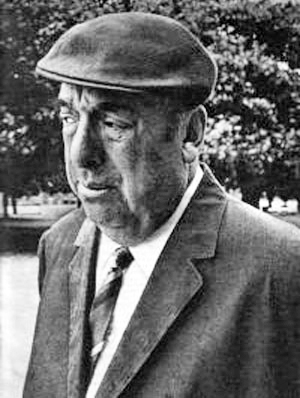
 [div class=attrib]Let America Be America Again, Langston Hughes[end-div]
[div class=attrib]Let America Be America Again, Langston Hughes[end-div]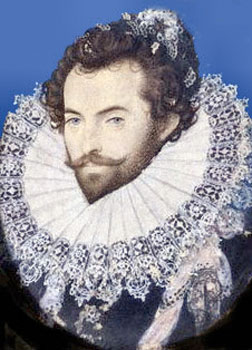 [div class=attrib]By Robert Pinsky for Slate:[end-div]
[div class=attrib]By Robert Pinsky for Slate:[end-div]